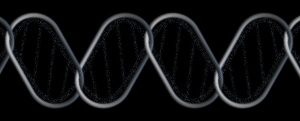Growing up I was not introduced to worship and faith in what I would describe as a helpful manner. That having been said, several members of my extended family were quite religious. The manner of their practice focused on the prohibitions and consequences rather than anything that could be described as love or virtue. I did get the lesson that we – human beings – were to oppose evil but there wasn’t any clear indication of an effective methodology.
Early on my experience with God distilled to an unrelenting and judgmental view of humans, in which they were essentially worthless, while giving them the loftiest of assignments. It isn’t remotely logical even to someone in grade school.
By the time I was twelve years old I divorced myself from attending church although, at that age, that wasn’t the phrase I used. I just stopped going. Theology became a cerebral, philosophical matter for me. For a time I dismissed faith as belonging to the same category as superstitious belief in fairies or magic. I did not embark on a life of deplorable behavior or debauchery. That path seemed dangerous; avoiding it was not based on the avoidance of sin. The concept of sin was also grouped with legends and fables.
As a subject theology (in a number of ways in which humanity has approached it) has stayed with me as an object of fascination. The notion of “evil” remains an idea that I’ll spend time pondering. A worthy handbook on the subject would, I think, provide 1. a concise but through definition of evil, 2. training on how to recognize it, and 3. procedures for to do when it found. Scripture and religious texts are actually fairly vague on these points – apart from praying to and praising the divine.
I have from time to time asked people how they address the first point. The most frequent answer is that evil is defined as “anything that causes harm”. On face value that makes sense but razor blade can cause harm. I wouldn’t call them evil. Given the assignment to resolutely stand against evil, usually no matter the cost – to attack it continuously until it is banished – it seems to me that evil has to be something so universally heinous that most people would agree, “Yeah. That has to go.”
From an intellectual stance and for more than a decade I used a formula in place of “evil”. What almost everyone else used that term to describe I would evaluate as a combination of stupid, crazy, and/or cruel. That does cover a wide range of objectionable behavior and wretched results. Were I to include a fourth element it would probably capture the willfully contrary and/or ignorant.
Stupidity does not require endless war; it can be “cured” with ongoing education. Insanity can be mitigated including by the hospitalization of those beyond treatment. The correction of cruelty falls in part within our education system and, failing that, our justice system. History has many example of how to correct those who deliberately oppose truth: shame, guilt, and other forms of peer pressure – resulting in exile as a last resort.
Evil would therefore be something outside those categories. I’m afraid I cannot provide Article I of a Moral Constitution. The above, I think, accounts for some of the things that evil is not. Recent research does, however, remind me that there are a few hundred named demons in past. There are fewer than 20 named demons in the Bible. Renaissance fascination with the occult provides most of the rest of the roster.
I once read that “public belial” used to be a crime. Unfortunately, I cannot find any proof of that now. Rather than working on the three-point handbook I may gradually add to a list of which demon represents what societal sin.
➀ Belial – assholes generally; ➁ Mammon – unrestrained capitalism and obsessive greed; ➂ Baphomet – obstinate know-it-alls (à la “My mind is made up. Don’t confuse me with the facts.”); ➃ Dagon – anything that teaches, glorifies, or encourages poor behavior; ➄ Moloch – those who oppose and obstruct another’s effort to do an agreed upon good; ➅ Abaddon – fearmongers and those who foster enmity instead of amity; ➆ Pythius – peddlers of alternative fact and those who obscure truth.

In these times it is interesting to note that in 1818 Jacques Collin de Plancy gave Rimmon as the name of the demon ambassador of/to Russia. There’s another point of trivia from esoterica that I can no longer connect to a source. The above image of a symbol for sin. It is identical to one of the alchemical symbols for sulphur apart from the “rocker” at the top. Use it in good health.
⟢ ⟡ ⟣


